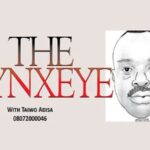IN the build-up to the August 9, 2014 Osun State governorship election, the preponderance of public opinion was then-incumbent Rauf Aregbesola of now-defunct regional opposition ACN and later APC, and now of national opposition coalition ADC, would be a one-term governor. His re-election project appeared doomed. He was broadly judged to have governed badly in his first term as a judicially installed governor of the state. Iyiola Omisore, his main rival, then of national ruling PDP and now of national ruling APC, was widely assumed to be governor-elect, just awaiting his election-day coronation. The state-wide wailing especially on the issue of distorted payment of workers’ salaries by the Aregbesola government, enhanced Omisore’s awaiting-messiah’s status. On his campaign trail especially in rural areas of the state where the pangs of grinding poverty and hunger, rightly or wrongly attributed to the government of the time, were pitifully mostly poignant, his entourage was mostly met with “Omi (shortened form of Omisore), jowo wa gba wa o”, (Omisore, please come and rescue us), ululating.
Among Ile-Ife native zealot supporters, his victory was given. I met one during the adjudication of the dispute arising from the poll. The elderly backer told me he had to be abroad during the poll, after largely participating in the campaign but didn’t even bother to monitor the election-night trickling results since he was sure the election would be officially called for his candidate who had been largely projected by the monitoring public to dislodge ACN and the Ilesa-born then-incumbent.
He got a shocker waking up the next day to Aregbesola not only officially winning the popular vote by more than 100,000 count, but also clinching 23 of the 30 local councils in the state. Like thousands of other backers, he was astounded by the stunning comeback by the victor. Aregbesola’s poll victory was judicially-upheld, marking a sharp turn from his first hurray when it was his defeat in the hands of then-PDP’s Olagunsoye Oyinlola in 2007 that was judicially upturned to victory in 2010, changing the Osun governorship election map to one of the outliers in the country, with South-West accounting for almost half, in three states of Ondo, Osun and Ekiti. There are also Edo, Bayelsa and Anambra in this category. Interestingly, only Kogi of the 19 Northern states is involved in this off-season stuff. Maybe someday, election historians will unlock this puzzling development especially the role of the judiciary, in the making of the redrawn electoral maps.
Last Friday, an attempt at that deconstruction by rights campaigner and judicial critic, Professor Chidi Odinkalu hit bookshelves across Nigeria. His new book, nomenclatured “The Selectorate: When Judges Topple the People” is a foray into the role of judiciary in election disputes. Though the title is a tad judgmental with preconceived notions of judiciary being the bad guy in election integrity issues in Nigeria’s civil rule space, stakeholders in the justice sector, engaging with the book’s main objective, despite the unhidden subjectivity of the author, would serve the system in the long run, regardless of the gadfly perception of Chidi.
Like yesterday, I remember November 26, 2010 when the Court of Appeal, sitting in Ibadan threw Oyinlola out and enthroned Aregbesola after three and a half year judicial battle. The court, serving as then-final constitutional arbiter was under the federal leadership of now-retired Ilorin-born jurist, Ayo Salami, solely responsible for empaneling the adjudicators. I also remember the ACN judicial victories in Ekiti and Osun descending into an all out in the judiciary and the polity then. I was in Ibadan same day but for a totally different reason. I was also too consumed in the personal engagement to notice the judicial re-drawing of Osun politics in the courtroom. Then suddenly wife of a big brother shouted nearby, a ku orire o, won ti gbe ijoba Osun fun eyin Ijesa (congratulations, Ijesa had been handed the control of Osun governance). Aregbesola would go on to rule for eight years. The jury is still out on his performance especially after he was written off in his first term but in my recent visit to Ilesa, I would say there is still some fondness around for him, maybe enough to sustain his hold on at least three or four of the six council areas in Ijesaland. This should be good news for his new bed-fellows in ADC, some whom the former governor would not have touched with a long pole as a far-left.
But strangest things happen in politics. Aregbesola’s rock that was largely credited with the turnaround that earned him re-election was today’s president, Bola Tinubu. As governor, Aregbesola flaunted the support of the one known as PBAT today. Then something nobody has been able to fix, happened between them. In PDP’s Jackson Adeleke’s blockbusting victory over 2022-incumbent Gboyega Oyetola, who used to be of same party with his predecessor, Aregbesola was very visible with his anti-party and nobody was confident enough to sanction him and his “renegade” group.
The realignment in Osun is so confounding that in the next year election, Tinubu is likely to end up backing the man he did everything to help Aregbesola defeat 11 years ago, including following him to beg in the house of Oyinlola, the man they used judiciary to sack four years earlier. And it doesn’t look like the realignment thing has run its course. The fluidity in Osun political firmament is a head-scratcher for bookmakers. Despite repeated denials, there are enough sizzles to suggest the incumbent governor who is of PDP at present, may “collaborate” with the president who is of APC for his re-election in 2027. So would anything be wrong in the president splashing some water ahead in 2026 to step on comforting ground in Osun in 2027? Adeleke was just about three months in office when he held Osun down for PDP and its 2023 presidential candidate, Atiku Abubakar, despite Tinubu’s men being in the saddle for 12 unbroken years. Yes, Adeleke now has a record to serve as a referendum for Osun voters, beyond his dazzling dance steps, but it doesn’t look like he’s underwater in his job approval. That the state is no longer in the news for religious tensions is a plus in tracking his administration and he would seem to have fairly doused the political fire ignited by the judicial inconsistencies in rulings on the contentious local council poll.
If Adeleke cozies up to the president, it is goodbye to the Aregbesola support, since the former “Lagos” comrades appear to have said permanent goodbyes. If the incumbent stays on his lane, maybe his PDP would be collaborating with Aregbesola’s ADC since it might be too late for the coalition to present a candidate with any serious chance of winning the election which is about 13 months away. That would mean a rematch especially if the defeated incumbent of 2022 is determined to achieve a non-consecutive two terms, following in the path of Ayo Fayose and Kayode Fayemi, both of Ekiti.
In 2014, Tinubu threw everything into keeping Omisore away from the seat, which was the closest the former deputy governor had gotten to achieving his dream of leading the state. He is back in the race and now vying on the APC platform where Tinubu is the ultimate leader and the president is likely to determine who gets the party’s ticket among the aspirants which so far include Ajibola Basiru, a disenchanted protege of Aregbesola who is now the national scribe of APC.
I remember Basiru as Aregbesola’s ally leading a contingent to Lagos to parley with the media in the heat of religious crisis ignited by Aregbesola’s government in Osun. I was at the parley. In the visiting team were Muyiwa Ige and Wale Bolorunduro, all commissioners in Aregbesola’s cabinet. But the obvious star of the group was Basiru, speaking, maybe a little inelegantly and combative, but in robust support of the perceived divisive politics and policies of his then-principal. I remember an editor calling Basiru’s attention to sounding aggressive and tough like his boss, even at the meeting, with the now one-term senator responding, in interpretative English language, with the Yoruba saying, “bi ewe pa be lara ose, a di ose (leaf bonded long with soap will be soapy). Now, they are political enemies; leaf (Bashiru) and soap (Aregbesola). While the future is unpredictable, right now, Basiru won’t want to be anywhere near Aregbesola, at least in public view, since politicians are like the biblical Nicodemus, without his virtues.
Osun 2026 bears verisimilitude to the 2014 poll, as a compass to the fate of a new alliance, akin to the one that eventually dislodged PDP a year later. APC was almost derailed by the loss in Ekiti in 2014 when Fayose of PDP used then-incumbent Fayemi of APC to wipe the floor. It was the Osun win that restored the coalition’s claim that the hype to take national was real. The state of the living spring became the coalition mojo.
Certainly, ADC doesn’t enjoy the hype-train of APC’s takeoff. Infact, the birth of the coalition last week was almost a train-wreck, but there is still a lot of time between now and the all-important Osun poll, for a makeover. But what is certain to be constant is the shifting political landscape of the state and the attendant drama. If Omisore ends up as the flagbearer of APC in the 2026 poll, then Tinubu as president, will be irrevocably committed to leading the battle to enthrone the one he fought tirelessly to keep away from Abere 12 years ago.
And his biggest foe would be the one he fought tirelessly as the national leader of his regional party to enthrone as Osun governor. What an irony! What a stunning reversal! What a life!
Amid the imminent explosive brinksmanship as the poll nears, my prayer is that the righteous will bear rule at the end of the day. That is when my people can rejoice; so says Proverbs 29:1.
READ ALSO: Osun politics, defection and Adeleke’s prospects in 2026
WATCH TOP VIDEOS FROM NIGERIAN TRIBUNE TV
- Relationship Hangout: Public vs Private Proposals – Which Truly Wins in Love?
- “No” Is a Complete Sentence: Why You Should Stop Feeling Guilty
- Relationship Hangout: Friendship Talk 2025 – How to Be a Good Friend & Big Questions on Friendship
- Police Overpower Armed Robbers in Ibadan After Fierce Struggle






